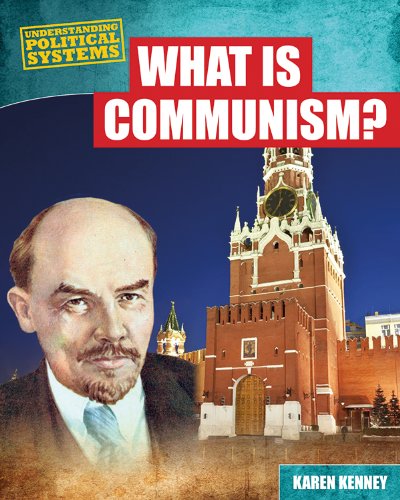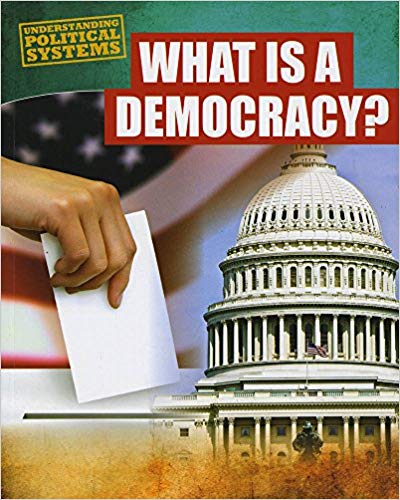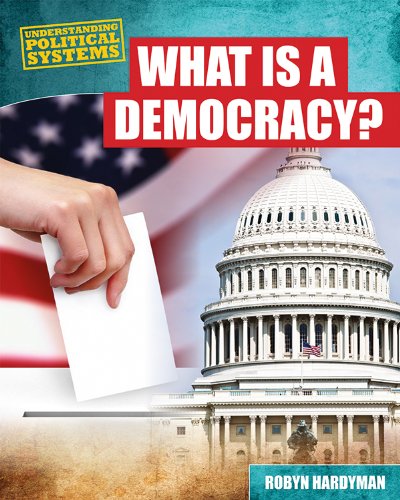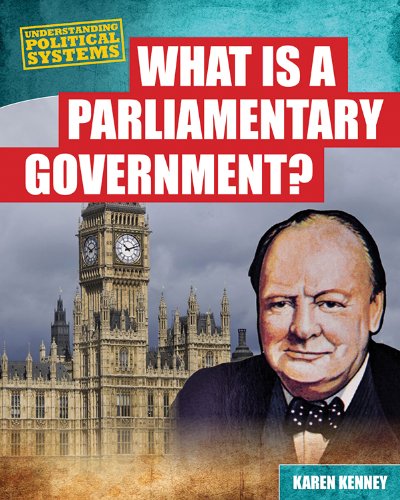-
What Is Communism?
Karen Latchana Kenney
Paperback (Gareth Stevens Classroom, Jan. 1, 2014)Examines communist governments around the world and throughout history, from Stalin's Russia to today's North Korea. T
T
-
What Is a Democracy?
Robyn Hardyman
Paperback (Raintree, )None
-
What Is Socialism?
Nick Hunter
Paperback (Gareth Stevens Classroom, Jan. 1, 2014)"Learn more about socialism and its many forms while exploring the successes and failures of countries who have embraced socialism throughout history."-- T
T
-
What Is a Democracy?
Robyn Hardyman
Paperback (Gareth Stevens Publishing, Jan. 1, 2014)"Find out more about democracy, which countries use it to govern, and learn some positives and negatives about this type of government"-- V
V
-
What Is a Dictatorship?
Nick Hunter
Paperback (Gareth Stevens Publishing, Jan. 1, 2014)The rise of a dictator never happens the same way. Dictators have absolute power over a country, but how they obtain that power and what they use it for makes this form of government one of the most interesting political systems in the world. Discover the harsh governments of dictators around the world and learn how ancient dictatorships have influenced modern leaders who rule with an iron fist. V
V
-
What Is a Parliamentary Government?
Karen Kenney
Paperback (Gareth Stevens Publishing, Jan. 1, 2014)Britain has a monarch and a prime minister. Whos in charge of the island? A parliamentary system of government is both similar and very different from democracy in the United States. Using historical text and primary sources discover how governments around the world balance a king or queen with a legislative branch. Learn how the parliament is elected, and how a bill becomes a law in the UK. Readers will better understand world news after diving into the often-complex world of political systems. U
U
-
What Is a Monarchy?
Robyn Hardyman
Paperback (Gareth Stevens Publishing, Jan. 1, 2014)"Monarchies have a king or a queen in charge of a country, but theres much more to a monarchy than who is in charge. Find out which countries have a monarchy in place and how the system of government has evolved over time. Who once had a monarch in charge? How does power change hands? Who is eligible to be king or queen?"-- Z
Z
-
Earth's Hydrosphere
Amy Hayes
Paperback (Powerkids Pr, Aug. 15, 2018)Water is one of the essential components necessary for life to exist on Earth. All of Earth's water in all its states, frozen, liquid, and gaseous, make up the hydrosphere. Liquid water exists on the surface of the earth but there are also reservoirs of water underground. Frozen water exists as glaciers, ice caps, and icebergs. This water makes up a special subcategory of the hydrosphere called the cryosphere. Water can even be found in the atmosphere in the form of water vapor. Readers will come to understand how the water cycle tracks water's movement from one phase to the next. R
R
-
Earth's Geosphere
Jenna Tolli
Paperback (PowerKids Press, Aug. 15, 2018)Earth's geosphere is made up of the planet's interior, rocks and minerals, landforms, and the processes that shape Earth's surface. The interior is comprised of many different sections, including Earth's core and crust. Readers will learn about types of rock, including igneous, metamorphic, and sedimentary rocks, and how they come together to form the rock cycle. There are many different types of minerals found inside Earth, some of which form the world's most precious gems, such as diamonds. The movement of tectonic plates inside Earth creates mountain ranges as well as drives the rock cycle. This book will help you fulfill standards in the earth science curriculum. R
R
-
Earth's Biosphere
Charles Hofer
Paperback (PowerKids Press, Aug. 15, 2018)The biosphere refers to the parts of Earth where life exists or where known life has existed in the past. The biosphere is comprised of the atmosphere, geosphere, and hydrosphere because life exists in each of those three spheres, from birds in the sky to fish in the water to worms in the dirt. Food chains represent interconnected life cycles in the biosphere. Energy is transferred from one organism to the next and, as apex predators die, nutrients are returned to the soil. Readers will learn how people affect the biosphere and how life and energy are maintained in the biosphere. R
R
-
What Is Communism?
Karen Kenney
Library Binding (Gareth Stevens Pub Learning library, Jan. 1, 2014)When people think of communism, they think of the former Soviet Union. The Red Square is no longer the centerpiece for communism in the world, but its impact still looms large in global politics today. Find out about communism around the world, including what communists feel government should do and what countries use communism today. This book also explores the positive and negative impact communism has had on people around the world. T
T
-
What Is a Dictatorship?
Nick Hunter
Library Binding (Gareth Stevens Pub Learning library, Jan. 1, 2014)The rise of a dictator never happens the same way. Dictators have absolute power over a country, but how they obtain that power and what they use it for makes this form of government one of the most interesting political systems in the world. Discover the harsh governments of dictators around the world and learn how ancient dictatorships have influenced modern leaders who rule with an iron fist. V
V